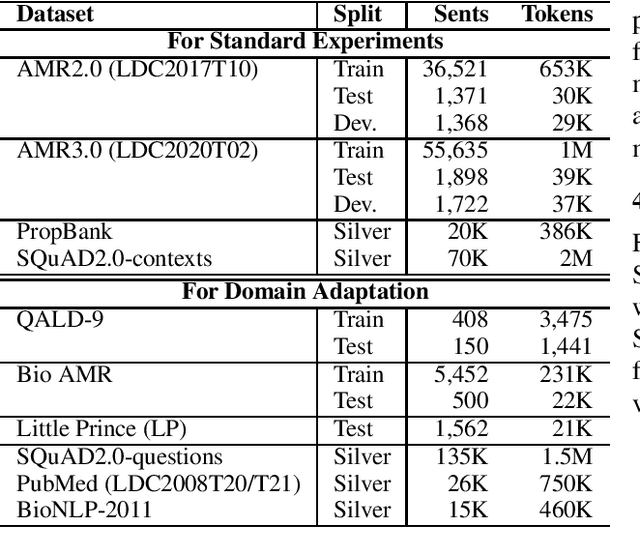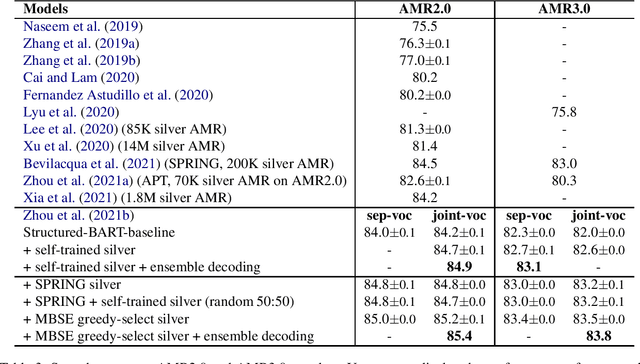Thanh Lam Hoang
Maximum Bayes Smatch Ensemble Distillation for AMR Parsing
Dec 14, 2021



Abstract:AMR parsing has experienced an unprecendented increase in performance in the last three years, due to a mixture of effects including architecture improvements and transfer learning. Self-learning techniques have also played a role in pushing performance forward. However, for most recent high performant parsers, the effect of self-learning and silver data generation seems to be fading. In this paper we show that it is possible to overcome this diminishing returns of silver data by combining Smatch-based ensembling techniques with ensemble distillation. In an extensive experimental setup, we push single model English parser performance above 85 Smatch for the first time and return to substantial gains. We also attain a new state-of-the-art for cross-lingual AMR parsing for Chinese, German, Italian and Spanish. Finally we explore the impact of the proposed distillation technique on domain adaptation, and show that it can produce gains rivaling those of human annotated data for QALD-9 and achieve a new state-of-the-art for BioAMR.
 Add to Chrome
Add to Chrome Add to Firefox
Add to Firefox Add to Edge
Add to Edge